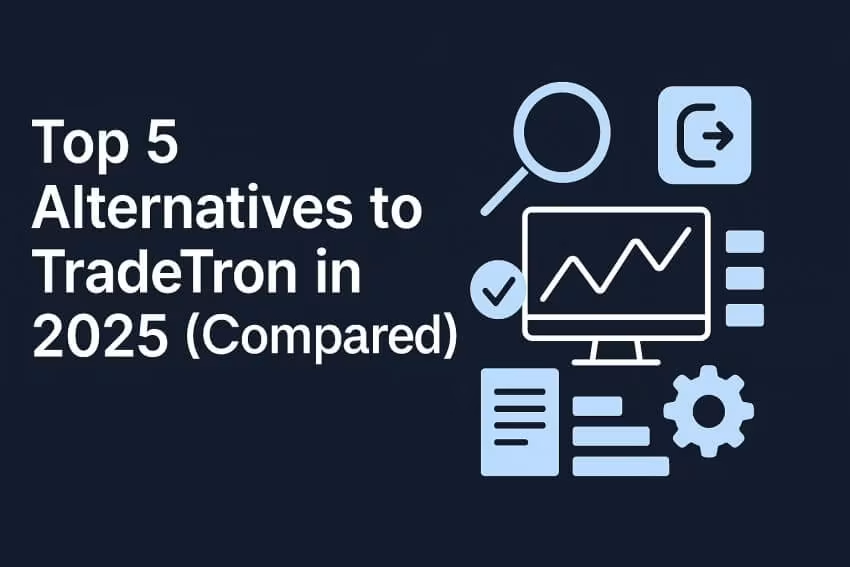Intraday trading, be it via algorithmic trading or otherwise, with its rapid pace and constant market fluctuations, is not just a numbers game; it's an intricate dance of emotions. The psychological aspect of trading plays a pivotal role in decision-making and overall success. In this blog, we delve into the profound impact of emotions on intraday trading, understanding how emotional intelligence can be a trader's greatest asset.
Defining Intraday Trading
Intraday trading, or day trading, via manual or algorithmic trading, involves buying and selling financial instruments within the same trading day to capitalise on short-term price movements. Traders do not hold positions overnight, relying on technical analysis for quick decision-making on entry and exit points. This strategy demands swift decision-making, strict risk management, and a focus on liquid assets with high volatility. Leverage is often used to amplify returns, emphasising the importance of cautious trading. While intraday trading offers the potential for quick profits, success requires discipline, continuous market monitoring, and a solid grasp of technical analysis principles.
Impact of Emotions on Intraday Trading
Intraday trading is not just a game of numbers; it's a psychological challenge where emotions play a significant role in decision-making. Understanding why emotions come into play in intraday trading is crucial for traders aiming to navigate the markets successfully.
Fear and Greed
Fear and greed are powerful emotions that can drive intraday trading decisions. The fear of losses or the fear of missing out (FOMO) can lead to impulsive actions, such as premature selling or chasing trades. Recognising and managing these emotions is essential for maintaining a rational approach.
Pressure of Quick Decision-Making
Intraday trading demands rapid decision-making due to the fast-paced nature of the market. The pressure to make quick decisions, via algorithmic trading or manual trading, can trigger emotional responses, leading to hasty actions without thorough analysis or consideration of risk.
Impacts of Market Volatility
Market volatility, inherent in intraday trading strategies, can intensify emotional responses. Sudden price fluctuations and unpredictable market movements can evoke fear, anxiety, or excitement, influencing traders' decisions.
Overcoming Loss Aversion
Loss aversion, the psychological bias where individuals fear losses more than they value gains, can significantly impact intraday trading. Traders may hold onto losing positions in the hope of a turnaround, driven by the emotional aversion to realising losses.
External Influences and News
External factors, including news and market rumours, can evoke emotional reactions. Traders may succumb to emotional impulses triggered by external influences, leading to sudden shifts in market sentiment and trading decisions.
Lack of Emotional Discipline
Emotionally undisciplined trading, driven by impulsivity or emotional biases, can result in deviating from a well-defined trading plan. Emotional discipline is crucial for adhering to strategies and avoiding impulsive actions that may lead to losses.
Overcoming Past Traumas
Previous trading losses or traumatic market experiences can linger in a trader's psyche, influencing future decisions. Emotional scars from past trades may lead to hesitation, avoidance of risk, or revenge trading, affecting overall performance.
Positives and Negative Impact of Emotions in Intraday Trading
The impact of emotions on intraday trading strategies can be both positive and negative, depending on how traders manage and channel their emotions. Here are some aspects to consider:
Positive Impact
- Intuition and Gut Feel: Emotions can sometimes provide traders with intuition or a gut feeling about market movements. Successful traders may leverage their emotional intelligence to make informed decisions based on subtle cues and patterns.
- Passion and Commitment: Emotional involvement and passion for trading can drive commitment and discipline. Traders who are emotionally invested in their work may dedicate more time and effort to honing their skills and staying informed.
Negative Impact
- Impulsivity and Overtrading: Emotional responses like fear and greed can lead to impulsive actions, such as making quick decisions without thorough analysis or overtrading. These behaviours can result in significant losses and undermine a well-thought-out trading plan.
- Decision Paralysis: Excessive emotional stress may lead to decision paralysis, where traders become hesitant or indecisive. This can result in missed opportunities and suboptimal decision-making.
- Revenge Trading: Emotional responses to losses, especially if fuelled by frustration or anger, can lead to revenge trading. Traders may take excessive risks in an attempt to recoup losses, which can exacerbate the situation.
Emotional Intelligence
- Self-Awareness and Control: Traders with high emotional intelligence can recognise their emotions, understand their impact on decision-making, and exert control over impulsive reactions. This self-awareness can lead to more rational and disciplined trading.
- Adaptability: Emotionally intelligent traders can adapt to changing market conditions without being swayed by fear or overconfidence. They can adjust their strategies based on a clear understanding of market dynamics.
Strategies for Calm Decision-Making
Intraday trading demands quick decision-making, and emotions can significantly impact outcomes. Here are strategies to reduce emotions while intraday trading, along with a pointer on the role of algo trading.
- Develop a Solid Trading Plan: Create a well-defined intraday trading plan with clear entry and exit points. Having a predetermined strategy helps reduce impulsive decisions influenced by emotions.
- Implement Risk Management: Set stop loss orders, on online platforms like uTrade Algos and otherwise, and adhere to risk management principles. Knowing your risk tolerance and having predefined risk limits can prevent emotional reactions to market fluctuations.
- Use Technical Analysis: Rely on technical analysis and indicators to make objective decisions. Charts and patterns provide visual cues, reducing the influence of emotions on trading choices.
- Stay Informed, Not Overwhelmed: Keep abreast of market news and trends without getting overwhelmed. Focusing on relevant information helps maintain a balanced perspective and avoids emotional reactions to noise.
- Practice Mindfulness and Discipline: Cultivate mindfulness to stay present in the moment and avoid dwelling on past trades or worrying about future outcomes. Discipline is key to sticking to your trading plan.
- Consider Algo Trading: Algo trading, on platforms like uTrade Algos, involves automated systems executing predefined strategies. It eliminates emotional reactions and ensures trades are executed based on pre-established criteria.
Recognising and controlling emotions is crucial for success in intraday trading strategies. Traders should manage feelings like fear and greed, maintaining discipline and resilience. A disciplined and emotionally aware approach is key to navigating the challenges of intraday trading effectively. This mastery enhances decision-making and overall performance in the dynamic world of financial markets.












